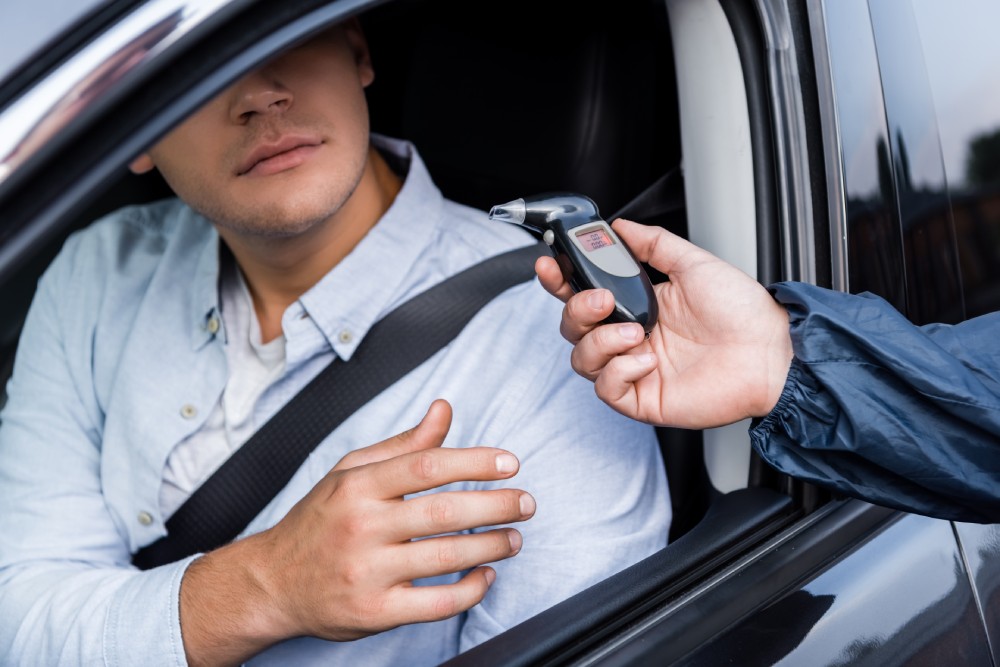When it comes to DUI laws, BRAC (Breath Alcohol Concentration) and BAC (Blood Alcohol Concentration) are two terms that often cause confusion. Both measure the amount of alcohol in your system, but they aren’t exactly the same.
If you’ve ever wondered how breathalyzers compare to blood tests, how law enforcement calculates alcohol impairment, or why your BRAC might be higher than your actual BAC, this guide will clear things up.
What Is BAC (Blood Alcohol Concentration)?
BAC stands for Blood Alcohol Concentration and represents the percentage of alcohol in your bloodstream. It is typically measured through:
- Blood tests – Considered the most accurate method but not immediate.
- Breathalyzers – Commonly used in roadside tests but provide an estimate of BAC based on breath alcohol content (BRAC).
Most states set 0.08% BAC as the legal limit for DUI, but impairment can begin at lower levels.
What Is BRAC (Breath Alcohol Concentration)?
BRAC (Breath Alcohol Concentration) is the amount of alcohol detected in a person’s breath and is used by breathalyzers to estimate BAC.
Law enforcement relies on BRAC readings because they are quick and non-invasive, but they may not always match actual BAC levels due to:
- Individual metabolism differences
- Mouth alcohol contamination (e.g., mouthwash, breath mints, or recent drinks)
- Breath temperature and breathing patterns
Since breath alcohol doesn’t always reflect blood alcohol levels exactly, DUI attorneys sometimes challenge BRAC-based arrests in court.
BRAC vs. BAC: How Are They Related?
While BRAC and BAC measure the same thing—alcohol impairment—they are not identical.
- BAC is measured from blood samples.
- BRAC is measured from exhaled breath.
To estimate BAC from BRAC, breathalyzer devices apply a conversion ratio known as the partition ratio (usually 2100:1).
What does this mean?
- The assumption is that 1 milliliter of blood contains the same amount of alcohol as 2100 milliliters of breath.
- However, this ratio isn’t the same for everyone, which is why breathalyzer results can sometimes overestimate or underestimate BAC levels.
How Reliable Are Breathalyzers Compared to Blood Tests?
Accuracy of BRAC Tests
Breathalyzers are widely used, but their accuracy depends on multiple factors, including:
- Calibration – Devices must be regularly calibrated to maintain accuracy.
- Mouth alcohol contamination – Recent mouthwash, burping, or acid reflux can cause false readings.
- Hyperventilation or shallow breathing – Can lead to lower or higher results than actual BAC.
Accuracy of BAC Tests
Blood tests provide a direct measurement of alcohol in the bloodstream, making them more accurate than breath tests. However:
- They require medical personnel and lab processing.
- BAC can change over time, so a delayed test may not reflect BAC at the time of driving.
For these reasons, breathalyzers are the primary tool for roadside testing, but blood tests are often used as evidence in DUI cases.
Can Your BRAC Be Higher Than Your BAC?
Yes! Since BRAC readings rely on the partition ratio assumption, some people naturally have higher BRAC readings than their true BAC.
Situations where BRAC might be inflated:
- Recent alcohol consumption – If alcohol is still in your mouth, it may cause a temporary higher BRAC reading.
- Body temperature – Higher body temperatures can cause higher BRAC readings.
- Medical conditions – GERD (acid reflux) or diabetes can sometimes lead to false positives.
This is why some DUI defenses challenge breathalyzer results, especially when a blood test later shows a lower BAC.
Why This Matters for DUI Charges
Because breathalyzer results can vary, it’s important to understand:
- If your BRAC is over 0.08%, you can be arrested for DUI—even if your actual BAC is lower.
- Some states allow defendants to request a blood test if they believe a breathalyzer is inaccurate.
- Mouth alcohol contamination can lead to false positives, making proper testing procedures critical.
If you ever fail a breathalyzer test but believe it was inaccurate, consulting an attorney and requesting a secondary test may be a good idea.
Final Thoughts: Know the Difference Between BRAC & BAC
Understanding BRAC vs. BAC can help you:
- Know how alcohol affects you and how tests may differ.
- Challenge inaccurate DUI charges when applicable.
- Make informed decisions about driving after drinking.
Since breathalyzers can overestimate BAC in some cases, it’s always best to avoid driving after drinking altogether.


